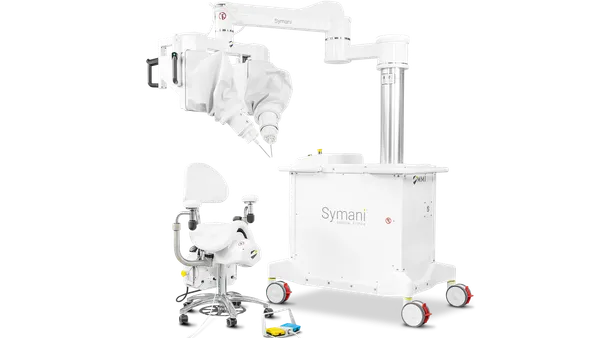Dive Brief:
- Edwards Lifesciences’ hypotension prediction index (HPI) software may stop low blood pressure in patients having noncardiac surgery, according to a prospective observational registry study.
- The study, details of which were published in the British Journal of Anaesthesia, assessed the duration and severity of low blood pressure in 702 people who were monitored by the software while undergoing elective major noncardiac surgery.
- Compared to historical data on unmonitored patients, the time spent with blood pressure below 65 mm Hg was “very low,” suggesting that “software monitoring may help reduce the duration and severity of intraoperative hypotension.”
Dive Insight:
Low blood pressure is common in patients undergoing surgery and is associated with organ injury and death. To tackle the problem, Edwards has used machine learning to predict arterial hypotension. The software, branded Acumen, analyzes the features of atrial pressure waveforms to predict the likelihood of low blood pressure. Above a certain threshold, an alarm sounds to tell physicians to address the risk.
Funded by Edwards, researchers in Europe worked to assess the incidence, duration and severity of intraoperative hypotension in patients monitored using Acumen. The study suggests there are benefits to using the software during major noncardiac surgeries.
The primary endpoint looked at time-weighted average mean arterial pressure (MAP) of less than 65 mm Hg, a commonly used definition of hypotension. In an earlier trial, unmonitored patients had an average of 0.44. The time-weighted average MAP of less than 65 mm Hg in the registry was 0.03, a figure that the researchers said is “substantially lower” than previous results in major noncardiac surgery patients.
“This suggests that using HPI-software monitoring may help reduce the duration and severity of intraoperative hypotension in patients having noncardiac surgery,” the researchers concluded. “However, randomized trials are needed to investigate whether HPI-software-guided hemodynamic management improves patient-centered outcomes by reducing hypotension.”
Edwards published a statement about the results on Monday, framing the findings in the context of how the “consequences of the COVID-19 pandemic have drastically accelerated the need for solutions that improve patient safety and outcomes, reduce hospital length of stay and increase hospital efficiencies.”









